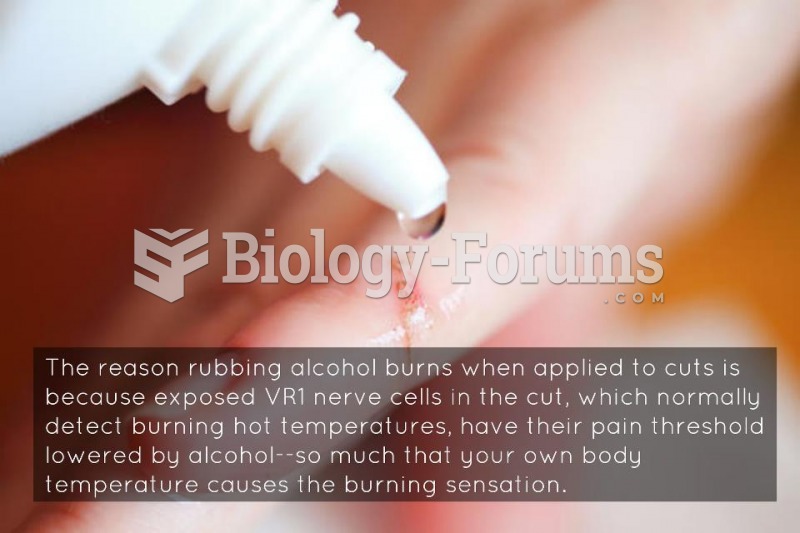|
|
|
Patients who cannot swallow may receive nutrition via a parenteral route—usually, a catheter is inserted through the chest into a large vein going into the heart.
In women, pharmacodynamic differences include increased sensitivity to (and increased effectiveness of) beta-blockers, opioids, selective serotonin reuptake inhibitors, and typical antipsychotics.
The average person is easily confused by the terms pharmaceutics and pharmacology, thinking they are one and the same. Whereas pharmaceutics is the science of preparing and dispensing drugs (otherwise known as the science of pharmacy), pharmacology is the study of medications.
Medication errors are more common among seriously ill patients than with those with minor conditions.
Pubic lice (crabs) are usually spread through sexual contact. You cannot catch them by using a public toilet.
 Distribution of glaciers in North America (a) in the late twentieth century, and (b) 18,000 years ag
Distribution of glaciers in North America (a) in the late twentieth century, and (b) 18,000 years ag
 (A) A 62-year-old patient with myxedema exhibiting marked edema of the face and a somnolent look. Th
(A) A 62-year-old patient with myxedema exhibiting marked edema of the face and a somnolent look. Th





